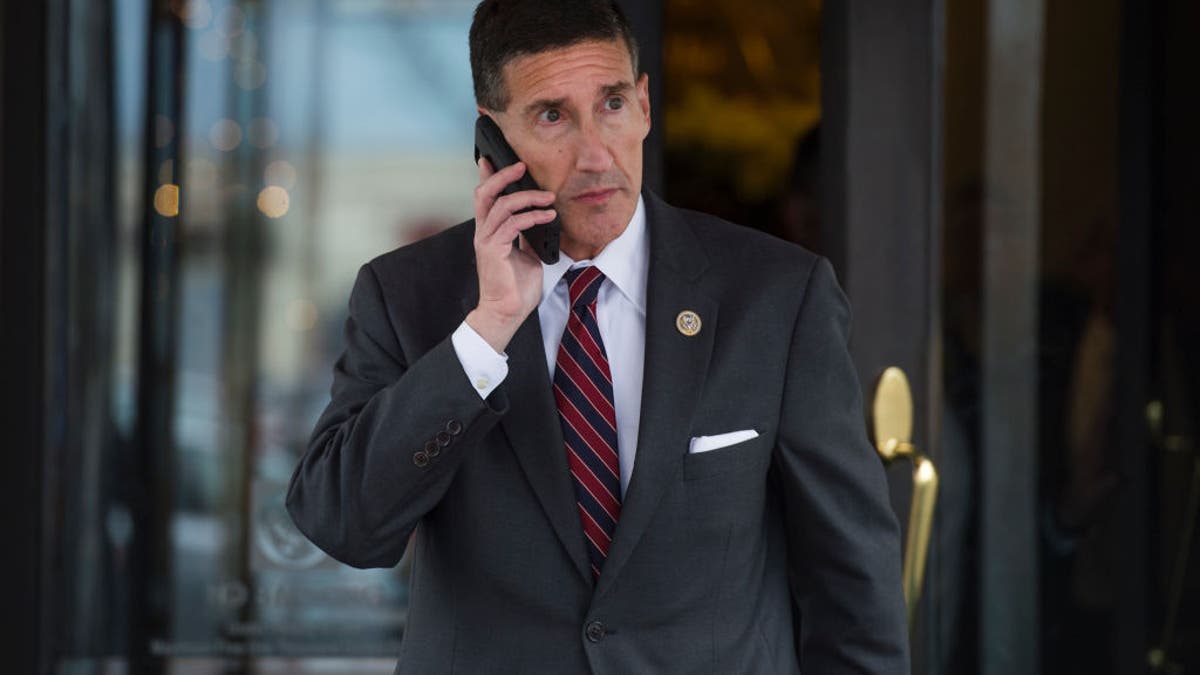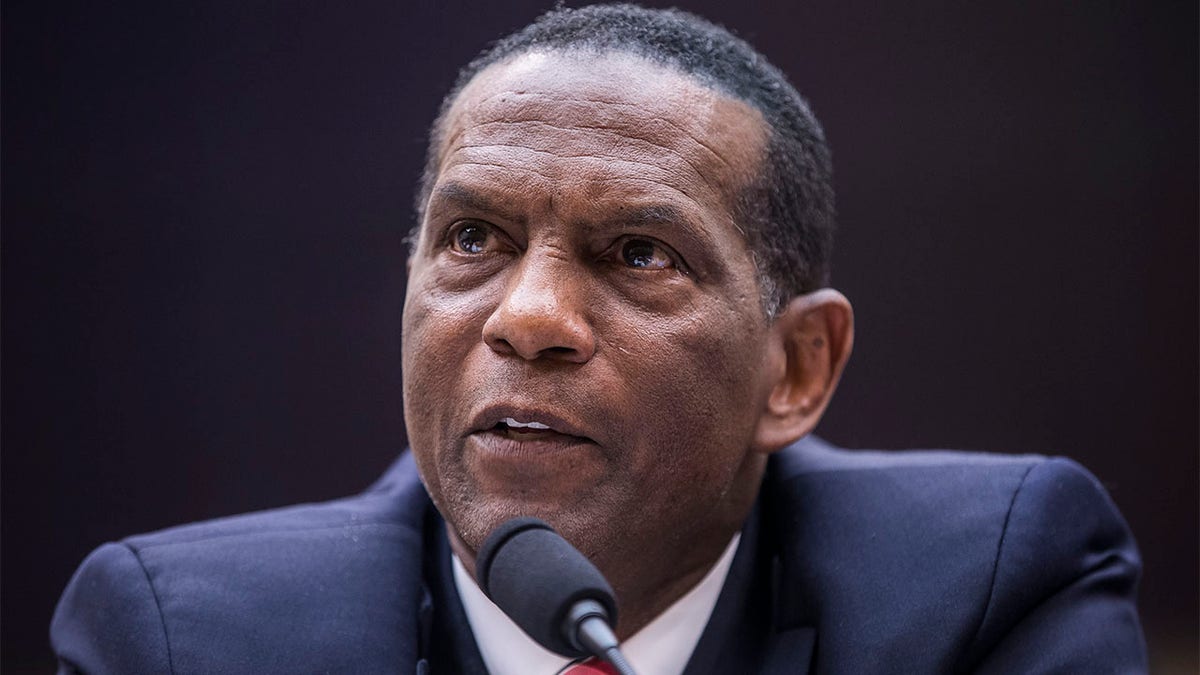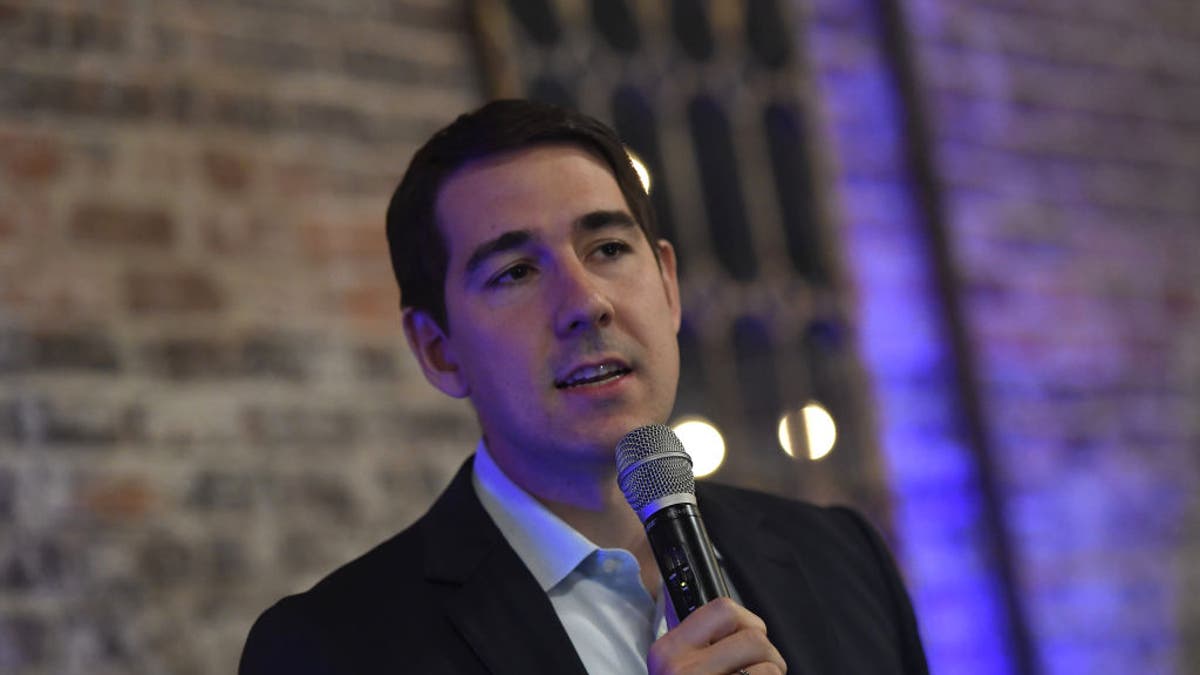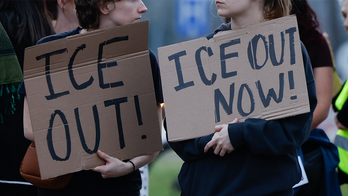NCAA volleyball player says Biden admin's 'leaving women behind' over trans athletes stance
NCAA volleyball player Macy Petty calls for 2024 presidential candidates to 'defend the dignity of women' in sports on 'America Reports.'
FIRST ON FOX: A bipartisan group of House lawmakers is looking to curb the National Collegiate Athletic Association's (NCAA) "monopoly power" over individuals and universities.
Reps. David Kustoff, R-Tenn., Burgess Owens, R-Utah, and Josh Harder, D-Calif., are reintroducing the NCAA Accountability Act to establish due process protections for individuals and universities under investigation for rule infractions.
Fox News Digital exclusively obtained Kustoff's press release on the reintroduction of the bill.
"College sports play an important role in American life; they bring people together and contribute to many local economies across the country," Kustoff said in the release.

Reps. David Kustoff, R-Tenn., Burgess Owens, R-Utah, and Josh Harder, D-Calif., are reintroducing the NCAA Accountability Act to establish due process protections for individuals and universities under investigation for rule infractions. (CQ-Roll Call/Getty Images)
"Unfortunately, the NCAA has nearly omnipotent power over college athletics and a pattern of unfair treatment towards its members," Kustoff said. "It is time Congress holds them accountable."
"This bill will provide the necessary due process, transparency, and fairness needed to protect our universities and student-athletes," he added.
Kustoff's press release noted that the NCAA is the largest association of its kind in the U.S. and "governs the athletic programs of and competition between member universities."
"Through its monopoly power and lack of oversight, the NCAA investigates and punishes its members with little regard for fairness, due process, or transparency," the press release reads.
"Its rules are irregularly enforced, and its investigations lack established procedures. Further, the NCAA punishes universities inconsistently and unpredictably," it continues.

Owens, a former professional football player, is one of the lead co-sponsors of the bipartisan measure. (Zach Gibson/Getty Images)
According to the release, the bill would require the NCAA to give fair notice of enforcement proceedings. The NCAA would also be required to finish an investigation within a year of its launch.
The bill also establishes a two-year statute of limitation for infractions and bars information from confidential sources from going into the NCAA enforcement decisions.
A spokesperson for the NCAA told Fox News Digital the "NCAA is transforming how it serves student-athletes by mandating Division I schools offer enhanced health, wellness and academic protections and is moving ahead to support student-athletes as they monetize their NIL rights, but there are some challenges facing college sports that only Congress can address."
"The NCAA is encouraged by the significant, student-athlete centric reforms included in several of the bills that have been introduced in the United States Congress, which would ensure the health and safety of student-athletes, increase consumer protections and transparency in the NIL market, and protect women’s and Olympic sports," the spokesperson continued.
"There is clearly growing bipartisan interest in taking legislative action to create a stable, sustainable, and equitable foundation for future generations of student-athletes and we are committed to working with all stakeholders to get this done," the spokesperson added.
Kustoff's office told Fox News Digital the congressman's interest in the issue was sparked by the difference in action the NCAA took when dealing with infractions from Duke University and the University of Memphis.

Harder is the lead Democrat on the bill. (Bloomberg/Getty Images)
In 2000, the NCAA investigated Duke for allegedly giving illegal benefits to one of the school's basketball players. The charges were dropped when the NCAA said it could not prove the school was aware of the violation.
Nine years later, the University of Memphis found itself in a similar situation when one of its players was found to have cheated on his SATs before playing in the school's 38-win 2008 season.
Memphis told the NCAA that they were unaware of the player cheating on the SATs but were found guilty by the association and were required to vacate their season record.
CLICK HERE TO GET THE FOX NEWS APP
Additionally, the bill would give universities the right to settle disputes through arbitration, requires the NCAA to be fair in its enforcement proceedings, and directs the association to give the Department of Justice (DOJ) an annual report on its enforcement proceedings.
The bill sets a $15 million fine via the DOJ through an administrative law judge for violating the bill and authorizes the DOJ to permanently remove any NCAA board of governors member.















































